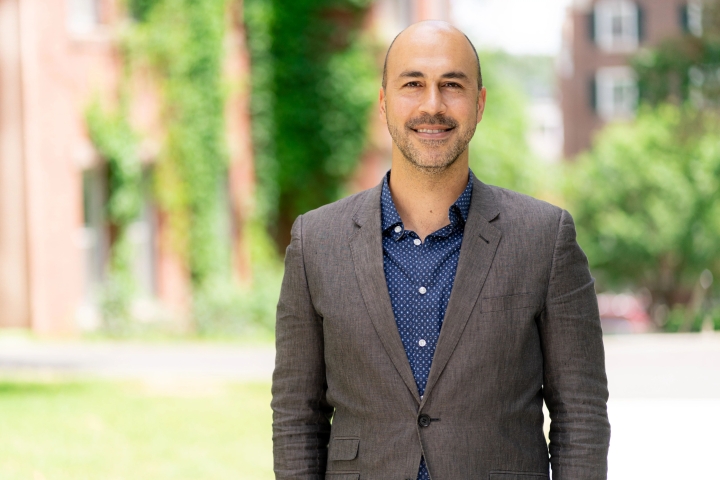Devin Singh, an associate professor of religion, has been awarded a New Directions Fellowship by the Andrew W. Mellon Foundation.
The program helps humanities faculty acquire training outside their fields to work on problems that interest them most, according to the Mellon Foundation website. By “encouraging the highest standards in cross-disciplinary research,” it also aims to benefit scholarship in the humanities overall.
“It’s a rare gift to be given funding to free up time to learn,” says Singh, who studies religious thought in the modern West.
In the coming year, Singh will explore how Christianity has encoded and transmitted trauma institutionally “and how those effects manifested in things like colonization and enslavement,” he says.
For his research, Singh will look at theological ideas in Christianity, in particular the ascension and disappearance of Christ, which, he says, may have been a “founding trauma” in the early days of the religion.
The research will require a working theory about the origins of that trauma, and tools for understanding how trauma becomes “encoded into the DNA of a movement and passed on over generations, both in ideas and practices.”
To that end, he’ll pursue two certificates—one in religion and conflict transformation from Boston University’s School of Theology, and another in trauma-informed care and clinical practice from NYU.
The Mellon award includes the equivalent of one academic year’s salary, two summers of additional support, and tuition for course fees.
While trauma theory and trauma care often focus on individuals, Singh says, having a deeper grounding in these areas will inform his study of how trauma “contributes to a structure that then perpetuates it across history.”
Ultimately, Singh hopes to create a new perspective by highlighting the hidden connections between several existing conversations.
“The dialogue between trauma theory and religion is established. People talk about generational trauma and to some extent institutionalized trauma. Certainly, people talk about colonization, slavery, and Indigenous experiences,” he says.
“I’m weaving those things together to consider the thread of this Christian doctrine of the Ascension, and how the trauma it masks and transmits may link all of those pieces together.”
During the application process, Singh worked closely with the Office of Corporate and Foundation Relations.
